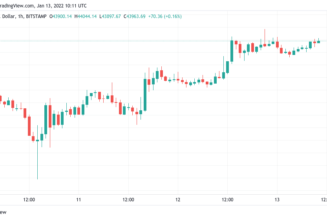
Although the cryptocurrency sector may still be considered the “Wild West” by some governments and regulators, continued adoption and emerging use cases show that digital currencies are here to stay. Some even argue that blockchain-based networks and decentralized finance, or DeFi, platforms may soon replace traditional financial systems.
Yet despite ongoing progress, the crypto industry is still young and, therefore, requires further development before it can be widely accepted. One area in particular that needs deeper addressing within the crypto space is regulation.
Mohamed El-Erian, chief economic advisor at Allianz — a German multinational financial services company — stated in a Financial Times article that it’s the duty of crypto proponents to cultivate better relationships with regulatory stakeholders, given the disruptive nature of the novel tech.
Fortunately, some members within the crypto community understand that relationships with regulators, policymakers and the public sector are necessary to foster adoption. As a result, working groups focused on developing standards for the blockchain space are beginning to emerge.
Working groups drive innovation for adoption
For example, leaders across the cash-to-crypto industry recently announced the formation of the Cryptocurrency Compliance Cooperative, or CCC. Founded by Bitcoin ATM operators DigitalMint and Coinsource, along with blockchain analysis platform Chainalysis, the CCC is a collaborative association that aims to develop compliance standards to legitimize the Bitcoin ATM industry in the United States.
This is especially important given the fact that nearly 48 cryptocurrency ATMs are installed per day in the United States. While impressive, industry participants have previously noted that in countries such as Canada, Know Your Customer compliance for crypto ATMs has only recently been implemented.
Bo Oney, executive vice president of operations and head of compliance at Coinsource, told Cointelegraph that although there has been exponential growth and maturity in the cash-to-crypto industry — especially with Bitcoin ATMs in the U.S. — there is still a lack of Anti-Money Laundering processes among companies. Many of these operators also lack financial crime prevention departments. As such, Oney explained that the CCC was formed to combat fraud and nefarious use cases:
“The best way to overcome the challenges faced by the cash-to-crypto industry is through this cooperative. We plan to publish logical and responsible standards that adequately address the concerns we are seeing, and then to share them with our industry. We hope that these are adopted in scale by all the companies in this sector and that we can define future regulations.”
While developing standards for the cash-to-crypto industry is the main objective behind the CCC, it’s important to point out the collaborative nature of the association. Marc Grens, co-founder and president of DigitalMint, told Cointelegraph that CCC hopes to bring together some of the best minds in the industry. Grens noted that this will ultimately allow for key players in the space to join forces to determine standards for an ever-growing, often misunderstood sector.
Grens emphasized that there wasn’t much of an impact when the Financial Crimes Enforcement Network, of FINCEN, came out with official guidance in 2013 saying that cryptocurrency exchanges and money transmitters must act as money services businesses under the Bank Secrecy Act:
“This guidance is like putting a square peg in a round hole. Regulators didn’t know much about cryptocurrency at this time, and basically took that act and shoved this industry in there. These individuals aren’t looking behind closed doors at what is really going on though.”
As Grens explained, the cash-to-cryptocurrency industry learned early that organizations needed to come together to deliver data-driven, objective facts about the fraudulent activity happening in the space: “The current money service business act is not enough to combat illicit activity.”
Oney further hopes that the CCC will become a milestone for the crypto ecosystem, as different players in an emerging, increasingly competitive space will join forces to develop standards for the betterment of an industry: “We don’t need government involvement to set standards.”
Although this may be, Oney did share that the CCC has close relationships with members of U.S. law enforcement, including those involved with the Federal Bureau of Investigation, the Department of Homeland Security, and local and state agencies. “We want to educate and communicate these individuals on what the standards should be. They can then implement the policies.”
The CCC is just one example of a collaborative association working to define cryptocurrency sector standards for regulators to adopt. Hailey Lennon, partner at law firm Anderson Kill, told Cointelegraph that various trade associations have developed over the last few years. She mentioned that some of these include the Blockchain Association, Virtual Commodity Association and Crypto Council for Innovation.
According to Lennon, it’s logical for crypto and blockchain companies to want to be a part of working groups and trade associations to help educate regulators, especially with all the different state and federal regulations floating around the space: “Regulation stifles innovation; carefully crafted regulation does less harm.”
This certainly does seem to be the case for the maturing cryptocurrency industry. For example, Chen Arad, chief operating officer of Solidus Labs — a risk monitoring platform for digital assets — told Cointelegraph that collaborative groups that share data and cross-market surveillance are key to answering the Bitcoin (BTC) futures exchange-traded fund (ETF) question. He remarked:
“The lack of shared surveillance agreements in crypto is the main reason for the SEC’s rejections of Bitcoin-ETF rule-change applications. The SEC wants to know if traders are manipulating Bitcoin across more than one exchange. Monitoring for this requires data-sharing agreements that would allow cross-market surveillance.”
Arad added that aside from the crypto sector, there have been plenty of examples of industry-driven self-regulation that has enabled new technologies to solve regulatory challenges and prosper. “The Online Lending Network in the lending space and the Intermarket Surveillance Group in the securities space have been created by those industries to solve very similar cross-platform concerns.”
Will working groups make an impact?
Lennon pointed out that many of the cryptocurrency working groups and collaborative associations mentioned are not currently recognized as official self-regulatory organizations, or SROs. In turn, Lennon explained that it may be challenging for regulators to work with these groups:
“An SRO is typically given legislative authority from a regulatory agency that allows it to create policies and enforce them in a specific industry. For example, FINRA is an SRO for the U.S. Securities and Exchange Commission. Currently, none of the organizations mentioned here have the legislative authority to function as an SRO and, therefore, they are more trade associations or working groups who provide suggestions for how regulations impact the space.”
Lennon explained that these groups are indeed helpful but don’t hold the same authority as SROs. Echoing this sentiment, Zachary Kelman, managing partner of Kelman PLLC and general counsel of Cointelegraph, believes that it helps to have an organizational body put out standards, but that the federal government generally looks at traditional industry standards: “The federal government has an agenda. They manage money service businesses and want them to comply with certain laws.”
Despite this, Kelman pointed out that it may be easier for cryptocurrency working groups to approach state regulators when it comes to standards, mentioning that this is the case especially as many U.S. states, such as Florida, now try to become crypto havens:
“It may be possible to have a standard for cryptocurrency ATMs on a state level as an educational tool for state regulators. If these standards are fairly uniform across the industry, then this could be helpful to coordinate efforts across the country.”
While this makes sense, Lennon remarked that another challenge is the growing number of working groups within the crypto space. In particular, Lennon is concerned that with so many working groups, there are overlapping goals and potentially conflicting messages: “In a perfect world, there would be collaboration between, or merging of, many of these groups to bring more cohesion to the industry.”










